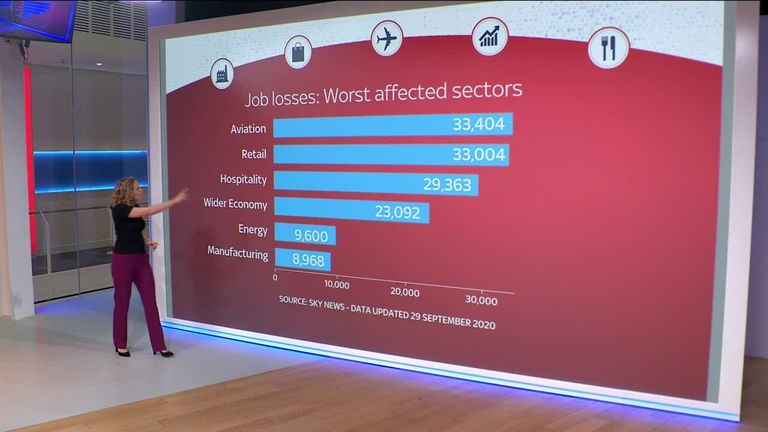Global stock markets have dropped as tightening restrictions to battle a second wave of coronavirus cases dampened hopes of economic recovery.
Britain’s FTSE 100 index was more than 2% lower at one stage, with steep sell-offs also seen across Europe with Paris going into curfew and London moving to tougher lockdown rules.
Live coronavirus updates from the UK and around the world
Further gloom came as jobless claims surged in the US at a time when hopes for a fresh US economic stimulus package fizzled out. There were jitters too over the state of Brexit negotiations.
The major US markets also opened down – by more than 1% – while sterling was more than a cent weaker against the US dollar at $1.29. That was largely a consequence of the continued Brexit bickering.
Russ Mould, investment director at AJ Bell, said: “Investors were greeted with a sea of red as global equity markets slumped on Thursday.
“It is becoming more apparent that the pandemic could still be raging well into 2021 and so economic prospects have become even more clouded.
“There were also negative comments from US Treasury Secretary Steven Mnuchin that a big stimulus deal was unlikely before next month’s presidential election, in line with previous comments from Donald Trump.
“Ultimately investors are unnerved by what’s going on with COVID-19 and how that is negatively impacting jobs and the ability for many businesses to succeed.”
The CAC in Paris and German DAX were both more than 2% lower at the close.
The FTSE ended the day 1.7% down at 5,832 – clawing back some value late on as the weaker pound helped boost the stocks of constituent companies which make sizeable earnings abroad.
The early fallers were led by consumer stocks such as Premier Inn owner Whitbread and luxury fashion group Burberry – each down about 5%. The latter still lost 4%.
The sell-off came after more jobs gloom in the UK, with pub and brewery group Marston’s blaming tougher restrictions as it said more than 2,000 workers faced the axe.
Meanwhile, Dublin-based airline Ryanair said more unpaid leave, job sharing and redundancies were on the cards as it slashed its winter capacity to 40%, blamed on travel rules.



